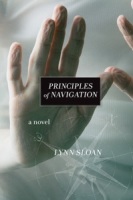 Haymaker
Haymaker
A Novel
by Adam Schuitema
A sleepy tourist town in Michigan’s Upper Peninsula awaits a coming invasion. Haymaker thrives on tourists who visit in the winter for an opportunity to tackle nature and those who visit in the summer to hike the dunes, soaking up some Lake Superior sun. The local Haymakes, as Schuitema names them, appreciate these tourists with a tight smile as they pass through, dropping funds along the way. The locals know that they need these strangers, and they accept this because these strangers leave. But a group of outsiders, joined by a common belief, have their eyes set on Haymaker as their potential utopia.
A group of libertarians migrate in a pack, calling themselves the Black Bears, and head to Haymaker. These individuals have families, careers, and lives that they’ve decided to uproot because they have an inherently American belief: Freedoms should not be tread upon. Haymaker has a history of small government, self-reliance, and free markets. Haymaker has land for sale and few zoning laws. Haymaker could be their headquarters.
However, while the Black Bears raise the common flags of rattlesnakes and freedom, they orchestrate a military-like invasion of a small town, planning to overtake the small government by force of majority. By sheer numbers, they claim, they will win elections. Local Haymakes will come around.
Backed by a scripture-quoting billionaire who may have ties to the federal government, this group plans for resistance in Haymaker, not peaceful integration. They send out flyers and recruitment ads, trying to gain in numbers what they may lack in local acceptance. Their plans proceed until a small few realize that their actions, however good their intentions, do not align with libertarianism, and that the locals are not signing over their town easily. The voice of reason in the Libertarian group is a family man, Josef Novak, who wants to integrate with the locals, understand them, and enjoy their already-libertarian lifestyle. Haymakes describe Josef as a vanilla moderate; he’s a hard guy to hate, they say. But Josef must quiet the extremists in his midst, while battling vandalizing locals, for this migration to be successful.
In Adam Schuitema’s Haymaker, a setting develops that becomes as real as elephant ears and sticky fingers at a Michigan town fair. While this sleepy community comes alive in Schuitema’s descriptions of the Shipwreck Cafe, year-round Christmas shop, and breathtaking heat along the dunes of Lake Superior, the novel takes heart within characters such as Josef, as the best stories often do. Schuitema’s complex story of a tense and changing political landscape in small-town USA simplifies and settles into the story of a mayor expecting her first child with a mentally unstable husband. It resonates the most, however, with a community member named Theodor Roosevelt.
 Called “the cowboy” because of his taste for all-white dusters, Stetsons, and cowboy boots, Haymakes consider Roosevelt an outsider, too, although he’s been a resident for many decades. As a transplant, Roosevelt seems to watch Haymaker from above. He mingles with the locals, but many avoid him because of his transplant status and eccentric ways.
Called “the cowboy” because of his taste for all-white dusters, Stetsons, and cowboy boots, Haymakes consider Roosevelt an outsider, too, although he’s been a resident for many decades. As a transplant, Roosevelt seems to watch Haymaker from above. He mingles with the locals, but many avoid him because of his transplant status and eccentric ways.
Roosevelt acts as the voice of reason. A welcome voice that speaks of compromise, Roosevelt is a party line-toer who claims no concrete allegiances. He is also a kind, grandfatherly man with an intricate past of his own. His past is an open book, he claims, if anyone cares to ask instead of speculate. This tall, white-haired man cuts a figure wherever he goes, but few approach him. He lives alone on the shoreline of Lake Superior in a house he cares for greatly and in solitude, which he treasures as well. When battles break out on the streets and in the homes of Haymaker, Roosevelt becomes an anchor for the town. If any of Schuitema’s characters embody the freedom-seeking self-reliance of libertarianism, it’s Roosevelt, a calm and rational man who claims no party.
The events, while at times slow-moving, that occur in Haymaker outline the tensions between extremes. Without flexibility on both sides, war must ensue. Schuitema writes a relevant story of current events that makes Haymaker’s name seem flexible, as if it could become that of any small town across America. A read to pair with classic works of Paine, maybe a bit of Orwell and most certainly with Rand, Schuitema’s first novel resonates as a real-life American example of the current and changing state of democracy, and what real American’s across demographics believe that term to mean. Yet, it reads as an engaging short story with a weaving, character-driven plot and not a word out of place.
April 2015, Switchgrass Books/NIU Press
Fiction
$17.95, paperback, 300 pages
ISBN: 978-0-87580-719-5
—Reviewed by Mindy M. Jones






